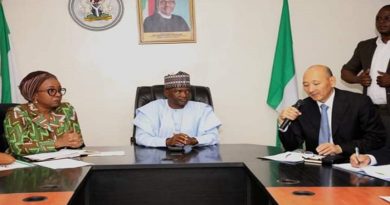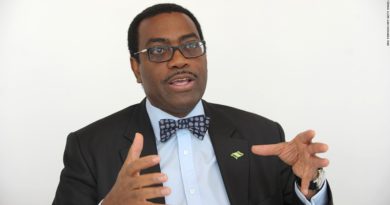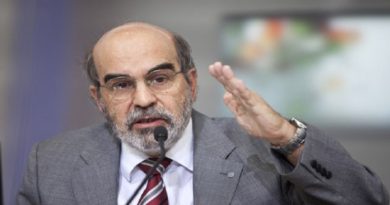States, others back UNDP/GEF food security project in northern Nigeria
Representatives of the seven states including Katsina, Kano, Jigawa, Gombe, Adamawa, Nasarawa and Benue selected for the United Nations Development Programme (UNDP), Global Environment Facility (GEF), Women Farmers Advancement Network (WOFAN) and the Federal Ministry of Environment Integrated Landscape Management to Enhance Food Security and Ecosystem Resilience in Nigeria Project at the weekend throw their weight behind the project saying its coming at a very good time.
Already, arrangements have been concluded to commence the five years programme aim to enhance productivity and promote sustainability and resilience of Nigeria’s agricultural production systems for improved national food security January next year.
At a well attended two-day inception meeting with stakeholders for the project held at the WOFAN Conference Hall in Kano, Kano State December 7-8, 2017 participants agreed that the project will boost food production and nutrition, address youth unemployment and empower women towards food sustainability.
In his opening remarks at the meeting, representative of UNDP Resident Coordinator and Team Leader, Environment, Mr Muyiwa Odele stated that the importance of the project cannot be overemphasised as it is rooted in the national priority of the Federal Government.
“There is no better time to start talking of food security than now considering the decline in oil prices worldwide and many countries are now phasing out dependence on oil.”
“The population of the country is increasing, therefore, we hope to strengthen the food chain system in the country against climate change as well as work with both the state and federal levels in eventually feeding the country and beyond conveniently,” he added.
He explained that the project will look at how to develop food security in view of the climatic change being experienced in the country.
Deputy Director, Agriculture Mechanisation, Federal Ministry of Agriculture and Rural Development, Mr. Abdullahi Abubakar, an engineer, assured that the project has come to stay and they will do everything possible to sustain it.
Abubakar added that women will greatly benefit in the project as they are deeply involved in agricultural processing which is a target. He urged the states focal persons to see to how to take the programme to the next level.
Project Consultant and lecturer in University of Lagos, Prof. Emmauel Oladipo, explained that the project is consistent with what the Federal Government is already geared toward in developing agriculture. He maintained that there is really no need to import food for the country once agricultural potentials are tapped, a goal of the food security and ecosystem resilience project.
Prof. Oladipo added that project is poised to enhance productivity and promote sustainability and Resilience of Nigeria’s agricultural production systems for improved national food security in the face of dwindling oil revenues in the country and beyond.
He identified some of the barriers to food security in the country to include poor agricultural and land management, poor participation of youth and week integration of the role of women among others.
In her remark, Founder and Executive Director, Women Farmers Advancement Network (WOFAN), Hajia Salamatu Garuba who extolled the project for being gender sensitive stated that it will make it a reality for women to come together and use agriculture as a livelihood.
Hajia Garuba who stated that Nutrition and adaptation to climate change are big components of the project expressed the hope that it will groom a lot of youth and women by attracting them to agriculture as a source of livelihood and discourage rural to city influx.
An official of the Kastina State government said the project is coming at a very good time.
The two-day inception attended by representative of the seven states, academia, media and non-governmental organisations across the country included group discussions where suggestions were made to the project document and experiences were shared.
Seventy communities of 13 LGAs of Dutsima, Musawa, Kabo, Gwarzo, Jahun, Katungo, Balanga, Yola South, Fufore, Akwanga, Kokona, Otukpo and Ukum respectively, in reflection of the three major agro-ecologies of the Northern part of the Country’s Savannah Zones would benefit from the project.



